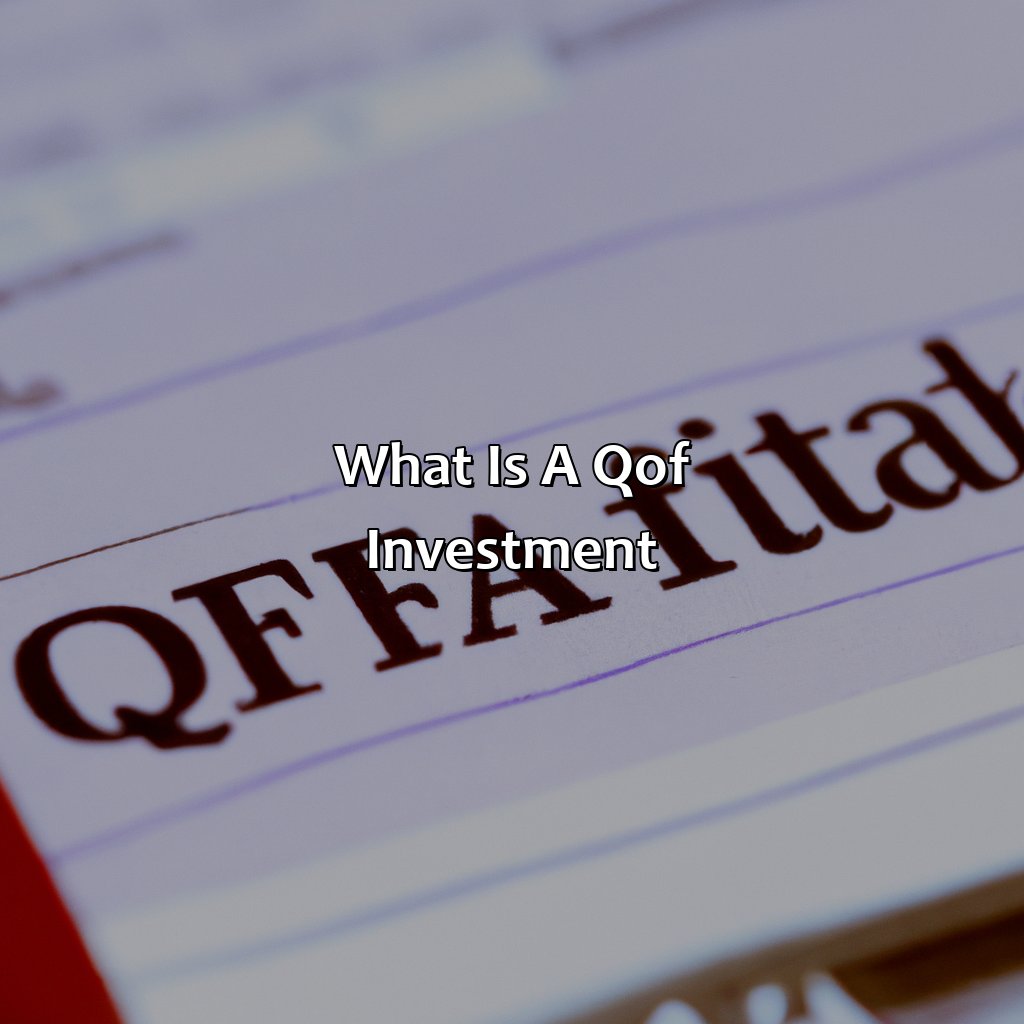What Is A Qof Investment?
Key Takeaway:
- A Qualified Opportunity Fund (QOF) investment is a tax-advantaged investment vehicle designed to promote economic development and revitalization in designated low-income areas known as Opportunity Zones.
- QOF investments offer attractive tax benefits, such as deferral or reduction of capital gains taxes, and can potentially generate economic benefits for investors, communities, and businesses in these designated areas.
- Investors must meet certain eligibility criteria to invest in a QOF, such as investing in eligible assets and adhering to strict timelines for investing and maintaining their investment. It is important to carefully evaluate the risks and potential rewards of a QOF investment before investing.
Are you looking for a unique investment opportunity? QOF Investments offer a tax-advantaged way to supplement your retirement plans and diversify your portfolio. Learn more about what QOF investments are and their key benefits.
Definition of QOF investment
QOF investment is a tax incentive that allows investors to defer capital gains by investing in Qualified Opportunity Funds (QOFs). These funds invest in low-income areas or zones designated as Opportunity Zones by the government. The investor can defer paying taxes on the capital gains until December 31, 2026, or until the QOF investment is sold, whichever is earlier.
Investments made through QOFs also offer potential tax benefits, such as a reduction in tax liability on the original investment if held for at least five years, and a complete waiver of taxes on the appreciation of the QOF investment if held for at least ten years.
It is important to note that QOF investments come with risks and should be carefully evaluated before investing. Investors should consider the financial health of the QOF, the underlying assets, and the potential returns before making any investment decisions.
Investors can benefit from QOF investments by deferring capital gains taxes and potentially receiving tax breaks on their investment. However, it is crucial to conduct thorough research and consult with financial professionals before investing in a QOF.
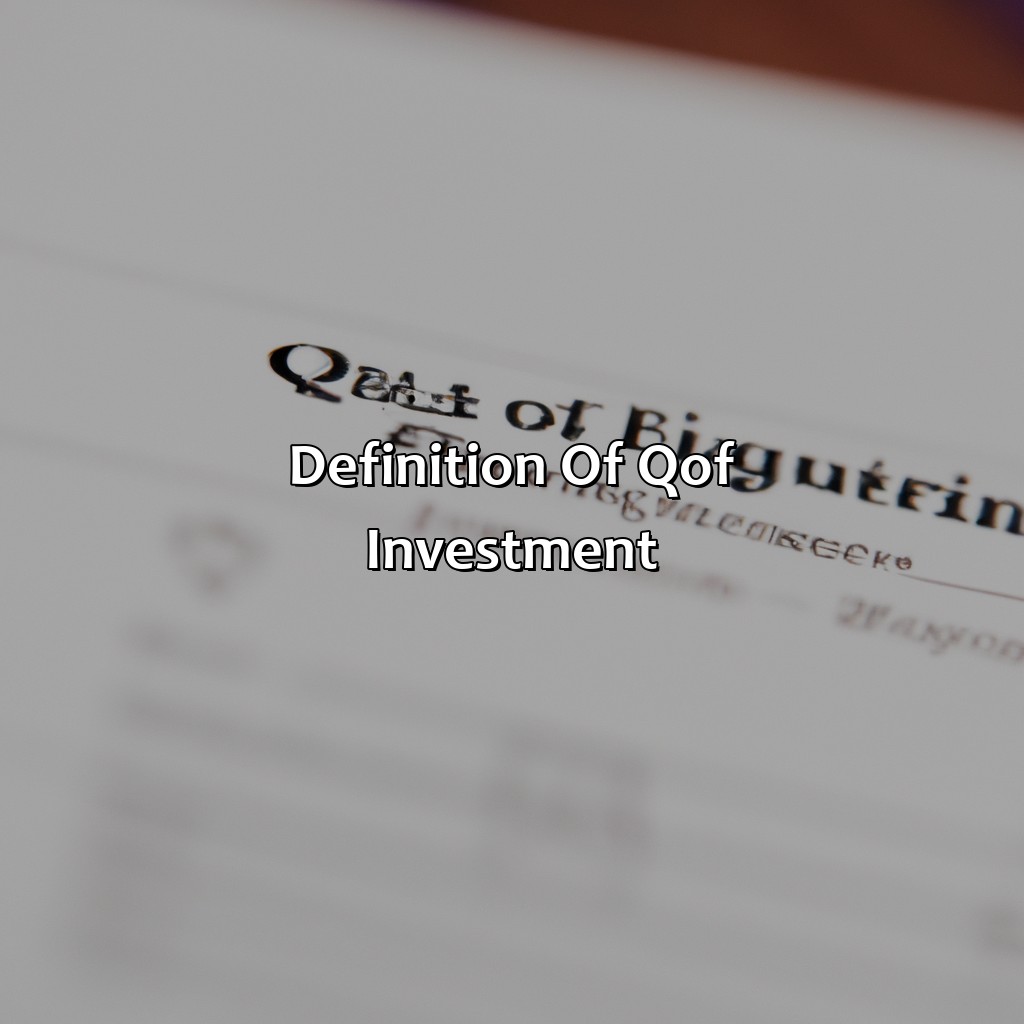
Image credits: retiregenz.com by Joel Woodhock
Benefits of QOF investment
To know the perks of putting money into a QOF, this section will explain further. Investing in a QOF has many tax advantages. Plus, it helps economic improvement, making it a great investment.
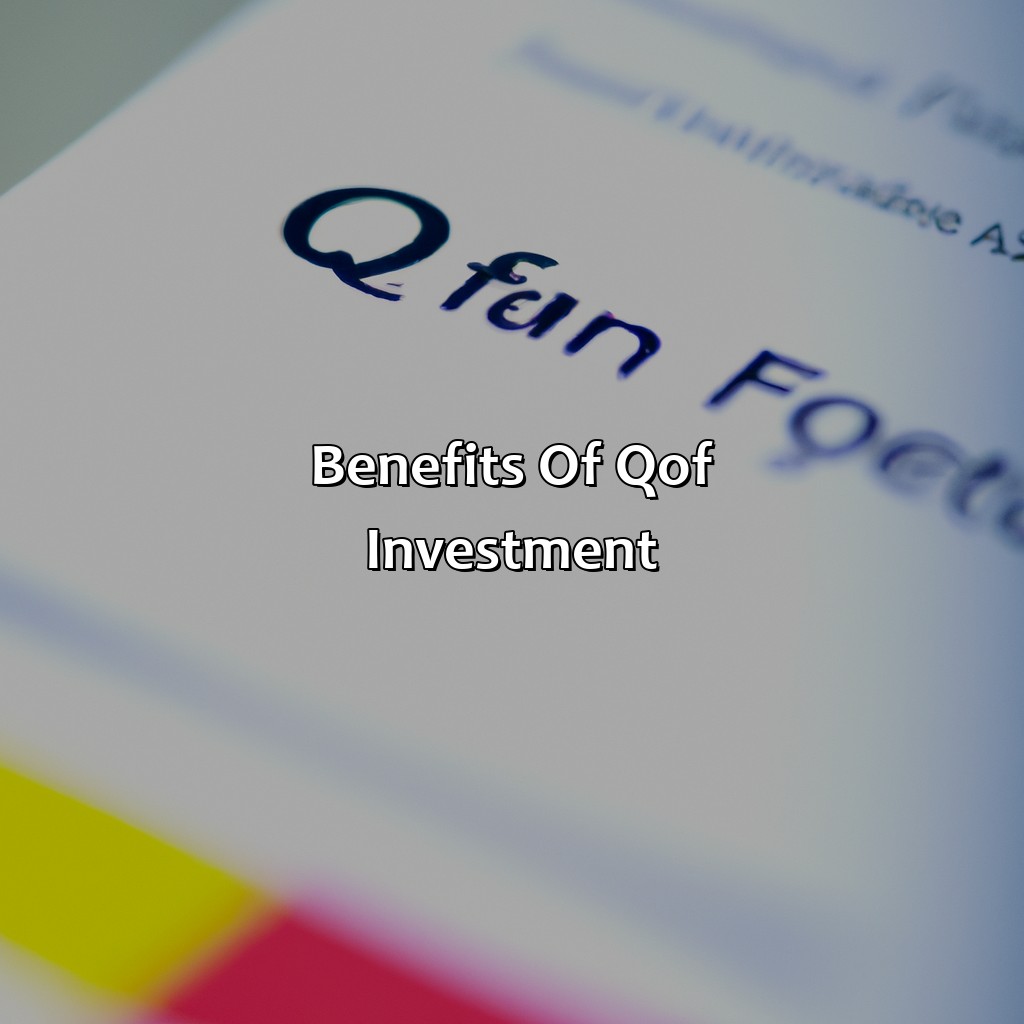
Image credits: retiregenz.com by David Arnold
Tax incentives for investing in a QOF
Investing in a Qualified Opportunity Fund (QOF) can lead to tax benefits for investors. These incentives include the deferral of capital gains taxes, reduction of taxes on deferred gains, and potential exclusion from capital gains tax for investments held for a certain period. By investing in a QOF, individuals and entities can potentially decrease their tax burden while also participating in the economic development of underserved communities.
Furthermore, investing in QOFs allow taxpayers to diversify their portfolios by investing in alternative markets which can help mitigate overall investment risks.
A crucial advantage of QOFs is that there is no limit on the amount an investor can contribute or invest, and there are no restrictions based on investor income level.
Pro Tip: Consult with a financial advisor or tax professional to determine if investing in a QOF makes sense for your specific financial situation.
Investing in a QOF: because making money while helping the community is the ultimate win-win situation.
Economic benefits of investing in a QOF
Investments in QOFs contribute to improved economic growth and opportunities for local communities. By investing in businesses and projects within QOFs, individuals can receive tax incentives while supporting development in struggling areas. Additionally, QOF investments attract more capital and talent to these regions, leading to higher property values and job creation. Furthermore, socially responsible investors can use QOF investments as a means of driving sustainable change in underserved communities.
In summary, investing in QOFs presents a unique opportunity for individuals to both receive tax benefits and support the growth and development of local economies.
True fact: According to a report by Novogradac, QOF investments have already contributed over $10 billion to various communities across the United States.
Choose a QOF investment wisely, or it’ll be easier to find a needle in a haystack than a return on your investment.
Criteria for a QOF investment
For investing in a QOF, you need to think about many factors. You should figure out proper criteria for this investment, as well as eligible assets and a timeline. Evaluating these sub-sections can help you decide if this investment fits your financial goals and personal preferences.
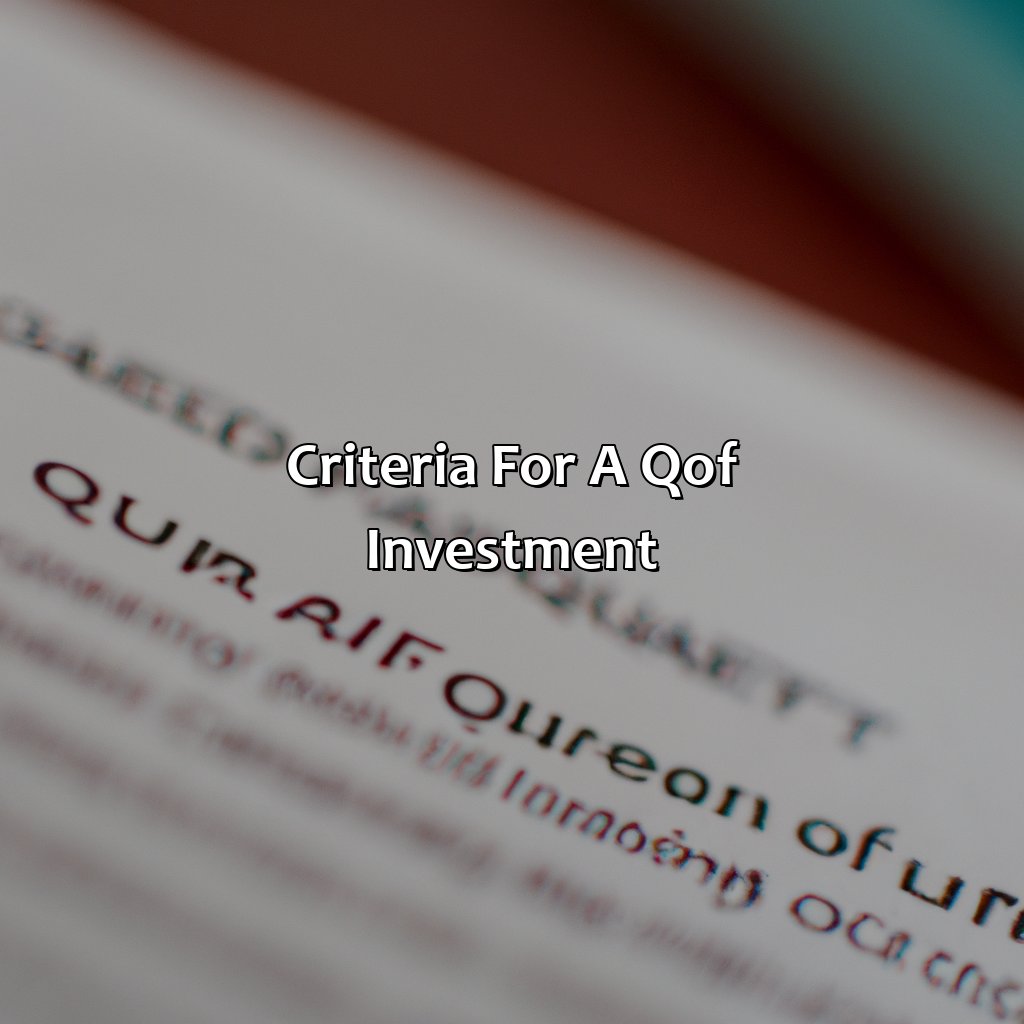
Image credits: retiregenz.com by Adam Washington
Eligible assets for a QOF investment
Investment in Qualified Opportunity Funds (QOF) is regulated by certain criteria to ensure the investment benefits underserved communities. Hence, identifying eligible assets for a QOF investment is crucial. The assets are classified based on their location and purpose.
Below is a table depicting the assets eligible for QOF investment:
| Location | Purpose |
|---|---|
| Low-income communities (LICs) | Investment in New Businesses |
| Non-LIC Populated Areas | Purchase/Improvement of Property |
| LIC and Non-LIC Populated Areas | Development of Property |
It is important to note that QOF investments are subject to geographic limitations, which determine if an area qualifies as an LIC or not.
Unique details concerning the eligible assets indicate that there’s no limit on the amount that can be invested in a QOF, but it should not exceed ten million dollars annually per investor. Additionally, QOF regulations require 90% of fund investments to be deployed in qualified opportunity zone property or businesses.
A true fact about QOF investments is that they were created as part of the Tax Cuts and Jobs Act of 2017.
Ready, set, invest! A QOF timeline that’s quicker than the flash’s speed.
Timeline for investing in a QOF
Investors who are interested in investing in a QOF, or Qualified Opportunity Fund, should be aware of specific timeline criteria for investment opportunities. The clock starts ticking after the realized capital gains from a previous investment are invested into the QOF. This clock entails investing within 180 days from the date of realization and includes both direct and indirect investments. The longer an investor waits to invest, the less tax benefit they will receive.
It is vital to note that different investment opportunities have their own unique timelines which may conflict with QOF criteria.
Pro Tip: Investors must ensure that they strictly adhere to QOF timelines to maximize potential tax benefits.
Ready to roll the die and take a gamble on a QOF investment? Brace yourself for the risks that come with the potential rewards.
Risks of investing in a QOF
It’s key to comprehend the risks of investing in a QOF. This includes “Potential for losses” and “Lack of liquidity“. Even though tax benefits may be attractive, it’s critical to think about the drawbacks. This part will help you evaluate the risks connected to a QOF investment.
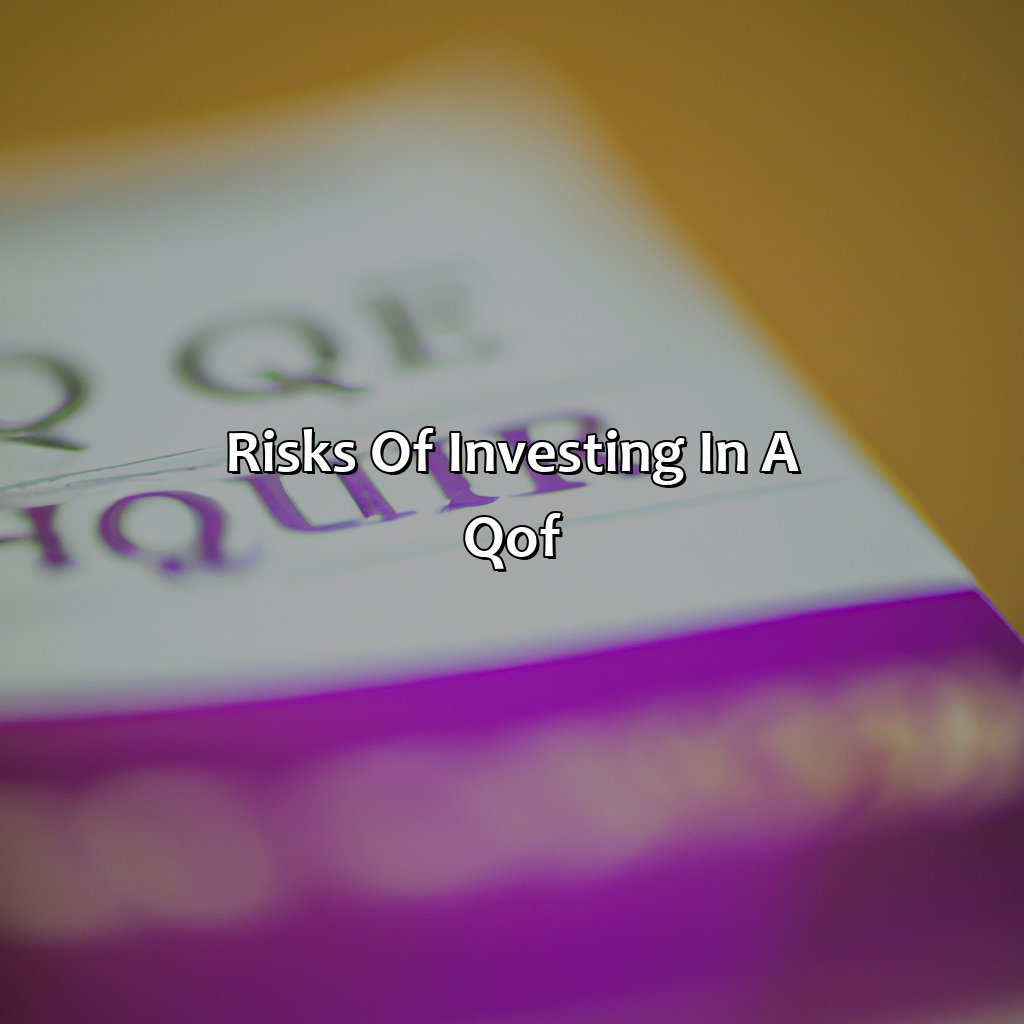
Image credits: retiregenz.com by Yuval Washington
Potential for losses in a QOF investment
QOF investments may result in potential losses due to various factors such as changes in tax laws, fluctuations in the market, or poor management of assets. Investors should carefully evaluate the risks involved and seek professional advice to mitigate them.
It is important to understand that QOFs invest in economically disadvantaged areas or zones, which have higher risks than other investment opportunities. Although they offer significant tax benefits, they are not immune to market or economic downturns.
Additionally, investors should consider the fees associated with QOF investments, including initial capital gains taxes and ongoing management fees. These expenses can significantly impact returns on investment and cause potential losses.
Pro Tip: Before investing in a QOF, thoroughly research the management team, their track record and experience in the industry. Only invest what you can afford to lose.
You might be stuck in a QOF investment longer than waiting in line for a cronut on a Saturday morning.
Lack of liquidity in a QOF investment
QOF investments have low liquidity – selling them quickly at a reasonable price is challenging. QOFs are designed to be long-term enterprises, and investments should be held for ten years for maximum benefits. Due to the illiquid nature of QOFs, investors may find it difficult or impossible to access their money before the end of the holding period.
Investing in QOFs may involve risks associated with lack of speed and ease in liquidating assets, which can lead to capital losses and missed opportunities. As QOF investments involve high minimum investment requirements and have low liquidity, there are limited secondary markets to buy and sell QOF shares after the initial offering. These types of investments may also have limited transparency as they do not need to disclose all investment details.
In addition to lack of liquidity concerns, investors should also pay attention to the fees involved in obtaining these types of funds, including deferred sales charges and other administrative expenses. Investors must perform careful due diligence before making an investment decision in a QOF.
Don’t miss out on potential opportunities by being unaware of the risk factors associated with investing in a QOF. Therefore, seek advice from relevant professionals who understand such complex matter deeply before diving into this type of investment.
Five Facts About QOF Investment:
A Qualified Opportunity Fund (QOF) is an investment vehicle that promotes economic development in low-income areas. (Source: IRS)
QOFs provide tax incentives for investors who reinvest capital gains in designated opportunity zones. (Source: Forbes)
To qualify as a QOF, the investment vehicle must hold at least 90% of its assets in qualified opportunity zone property. (Source: Novogradac)
QOF investors can defer paying taxes on capital gains until 2026 if they invest in designated opportunity zones. (Source: CNBC)
The QOF program was created as part of the 2017 Tax Cuts and Jobs Act to encourage investment in economically disadvantaged communities. (Source: NCSHA)
FAQs about What Is A Qof Investment?
What is a QOF investment?
A QOF investment refers to an investment in a Qualified Opportunity Fund which is a tax-advantaged investment vehicle for investors who want to invest in economic development in designated low-income and underdeveloped communities. These funds allow investors to defer capital gains taxes and offer other tax benefits.
What are the benefits of investing in a QOF?
Investing in a QOF offers significant tax benefits, including deferral of capital gains tax, reduction in the amount of the deferred gain subject to tax, and the potential for tax-free gains on the QOF investment. Additionally, investing in a QOF creates opportunities for economic development in underdeveloped communities.
How does a QOF investment work?
A QOF investment works by allowing investors to roll over capital gains into a Qualified Opportunity Fund within 180 days of realizing the gains. The investor then holds the investment in the QOF for a set amount of time to qualify for tax benefits. The QOF invests the capital in designated low-income and underdeveloped areas to stimulate economic development.
What kind of projects do QOF investments support?
QOF investments support a wide range of projects in designated low-income areas, including real estate development, affordable housing, small business development, infrastructure improvements, and renewable energy projects.
What are the risks associated with QOF investments?
As with any investment, there are risks associated with investing in QOFs. These risks include the possibility of losing the principal investment, lack of liquidity, and market volatility. Additionally, investors should conduct thorough research on the fund and its investment strategy before investing.
How are QOF investments taxed?
QOF investments offer significant tax benefits, including the deferral of capital gains tax until 2026 or until the investment is sold, as well as the potential for permanent exclusion of capital gains tax on the QOF investment. Additionally, investors may be eligible for a reduction in the amount of the deferred gain subject to tax. However, if the QOF investment is not held for the required amount of time, investors may be subject to tax penalties.
 Checkout this IRS Loophole
Checkout this IRS Loophole 
